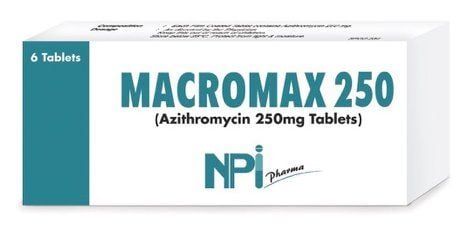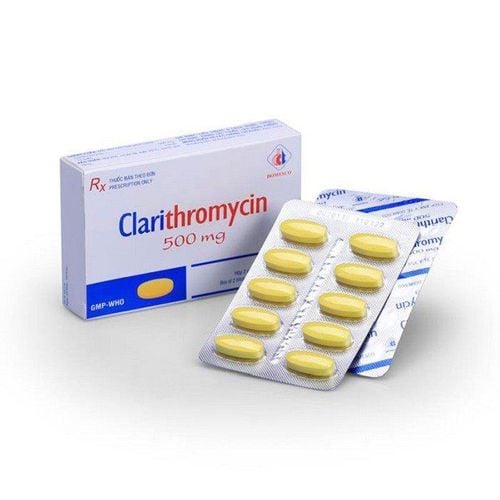This is an automatically translated article.
This article is professionally consulted by Master, Resident Doctor Dang Thi Ngoan - Pediatrician - Neonatologist - Department of Pediatrics - Neonatology - Vinmec Ha Long International Hospital.Immunodeficiency is a condition that occurs when the body's protective barriers are broken, leading to the easy entry of pathogens such as bacteria, viruses or parasites. The deficiency of the immune system will reduce the body's resistance, increasing the risk of diseases affecting health.
1. Congenital immunodeficiency
Congenital immunodeficiency, also known as primary immunodeficiency, is a genetic defect that prevents children from producing enough immune cells or substances to help protect the body against infections. pathogens.
Therefore, children with congenital immunodeficiency often have a much higher risk of disease than normal children, especially infectious diseases. The disease, if detected early, can be treated stably with supportive methods. On the contrary, if the disease is left untreated, it can lead to a high risk of death or serious complications.
The immune system in the body is made up of lymphatic tissues including bone marrow, lymph node system, and other organs such as spleen, stomach, intestines, pituitary gland and tonsils. Protein molecules or blood cells are also part of the immune system.
Therefore, any factor or impact that damages these organs is at risk of leading to a weakened immune system. And vice versa, when the body's immune system is weakened, any component or part of the immune system can be adversely affected. Therefore, it can be said that immunodeficiency disease affects the health of the whole body, the severity depends on each individual.
The cause of congenital immunodeficiency in children is mainly genetic. Children with congenital immunodeficiency are often more sensitive to many different infectious agents, depending on the nature of the immunodeficiency of the body such as:
Hereditary immunodeficiency affects cells B such as: decreased gamma globulin in the blood leading to gastrointestinal and respiratory infections; or cases of babies born with a loss of gamma globulin in the blood, causing severe infections, with a high risk of death. Inherited T-cell-related immunodeficiency often causes repeated fungal infections.

This is completely different from cases of acquired immunodeficiency or immunodeficiency in the elderly. Besides the manifestations of immunodeficiency, there are also signs of the underlying cause such as immunosuppression due to excessive use of corticosteroids, or immunosuppression in patients with HIV/AIDS...
From The results of actual research on clinical cases show that in cases where the parents have abnormal immune deficiency in the genome, the child is born at a higher risk of congenital immunodeficiency compared with the parents. with normal parents.
Congenital immunodeficiency characterized by increased susceptibility of the child's body to infections, especially opportunistic infections, which sometimes do not occur in people with a normally functioning immune system such as :
Children have signs of severe and persistent infections such as: respiratory tract infections (bronchitis, pneumonia, pharyngitis, sinusitis, VA...) or external infections, ear infections. Meningitis or susceptibility to skin infections. Inflammation and infection of internal organs, which can be inflammation of one or more organs at the same time. Having blood and cardiovascular diseases such as anemia, low platelet count, congenital heart disease. Digestive problems such as abdominal cramps, loss of appetite, nausea and persistent diarrhea occur frequently. Newborns often have delayed umbilical cord shedding, which can last beyond 30 days. Slow growth and development. Children with signs of rheumatoid arthritis, lupus, type 1 diabetes. In some cases, systemic reactions may occur when using live attenuated vaccines such as tuberculosis vaccines. Blood tests show a decrease in the peripheral lymphocyte count below 2500/ml. In pediatric patients with congenital immunodeficiency, the disease often occurs repeatedly, in some cases, high doses of antibiotics are used to treat it, but there is still not much progress.

2. What to do with congenital immunodeficiency?
When detecting that a child has abnormal signs that suspect congenital immunodeficiency, the first thing to do is to immediately bring the child to a specialized medical facility for early examination and diagnosis. Exploiting information about the family history as well as the child's medical history or development will help the doctor make a more accurate diagnosis of the child's illness.
Congenital immunodeficiency disease in children is a dangerous disease, with a high risk of death, or severe complications. However, if the disease is detected early, it can be treated stably. Treatment methods:
Immunoglobulin therapy. Gamma interferon therapy. Use growth factors. Methods of stem cell transplantation. In order for the treatment to be effective, it is important during treatment to change habits to create a healthy lifestyle.
Regularly clean the child's body, if the child is older, they can be guided to form a habit of washing hands with mild soap after going to the toilet and before eating. Dental care for children regularly: Brush teeth at least 2 times a day after meals, gargle with salt water. Ensuring children eat hygienically, building a suitable and balanced diet can help the body strengthen resistance and prevent infection. Physical activity: Gentle exercise will be very beneficial for health. Give your child enough sleep: Go to bed and wake up at a certain time every day, sleep for 8 hours a day. Avoid stress, do not put pressure on children. Several studies have shown that stress can hinder the immune system from functioning. Therefore, keeping stress under control with massage, meditation or yoga with older children, biofeedback, or hobbies can also trigger a better immune system. Take good care of your pregnancy health, get regular checkups as directed and prescribed by your doctor. Avoid contact with disease sources: limit children to crowded places, avoid contact with people who are suffering from colds or other infections. Ask your doctor about routine immunizations.

Congenital immunodeficiency disease can be classified into a group of dangerous diseases because the disease has a high risk of death if not detected and treated promptly. Take your child to see a doctor immediately if the child shows signs of frequent gastrointestinal, skin or respiratory infections ... which cannot be completely treated, the disease recurs continuously into many persistent episodes. Early detection and timely treatment will help bring back the health and stable development of children.
Pediatrics department at Vinmec International General Hospital is the address for receiving and examining diseases that infants and young children are susceptible to: viral fever, bacterial fever, otitis media, pneumonia in children, .... With modern equipment, sterile space, minimizing the impact as well as the risk of disease spread. Along with that is the dedication from the doctors with professional experience with pediatric patients, making the examination no longer a concern of the parents.
Doctor Dang Thi Ngoan used to be a lecturer in the Department of Pediatrics - Hai Phong University of Medicine and Pharmacy. Having been granted certificates in Pediatrics at home and abroad such as: Westmead Hospital, Australia; Hai Phong Medical University. Currently, Doctor Ngoan is a pediatrician - neonatologist at the Department of Neonatology at Vinmec Ha Long International Hospital.
Please dial HOTLINE for more information or register for an appointment HERE. Download MyVinmec app to make appointments faster and to manage your bookings easily.














